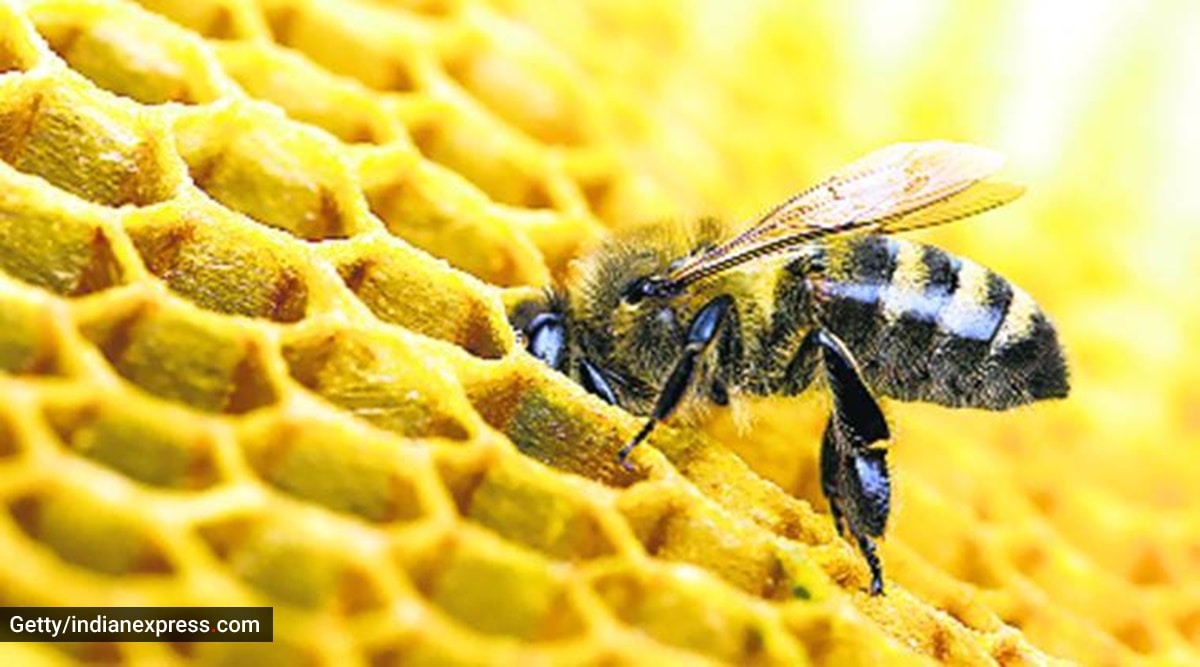 Picture used for representational purpose
Picture used for representational purpose HONEY SOLD by major brands in India are laced with a modified sugar syrup, imported from China as well as manufactured in India, which go undetected during quality checks under prevailing Indian standards, a Centre for Science and Environment (CSE) investigation has found.
The major brands named by CSE include Dabur and Patanjali. Both have rejected the charges. The CSE also released a paper trail showing revisions in the Indian quality standards for honey brought about by the Food Safety and Standards Authority of India (FSSAI) between 2017 and 2020. When contacted, the FSSAI said it will study the findings published by the CSE and take necessary action.
Addressing a press conference Wednesday, CSE director general Sunita Narain said samples of 10 out of 13 brands, which were examined, failed to clear the Nuclear Magnetic Resonance (NMR) test, which can provide clues into the composition of a product at the molecular level.
Of the 10 brands, three failed to clear even Indian quality standards, while five failed the TMR (test to detect rice syrup) apart from NMR. The tests were carried out in a German lab, Narain said.
Incidentally, on August 1, NMR tests were made mandatory for honey being exported from India. Also, TMR tests were removed from the list of quality parameters in October 2019.
The German lab found that “Dabur honey passed tests for C3 and C4 sugar, but failed the NMR tests on all three samples. In one sample it also failed on TMR and Patanjali honey passed tests for C3 and C4 sugar, but failed TMR and NMR tests on both samples”.
In its response, Dabur India Ltd said, “The recent reports seem motivated and aimed at maligning our brand. We assure our consumers that Dabur Honey is 100% pure. We also assure our consumers that Dabur does not import any honey/syrup from China and our honey is sourced entirely from Indian beekeepers.”
“Dabur is complying with the 22 parameters… mandated by FSSAI. In addition, Dabur Honey is also tested for the presence of antibiotics, as mandated by FSSAI. Further, Dabur is the only company in India to have an NMR testing equipment in our own laboratory,” it added.
Patanjali Ayurved Ltd MD Acharya Balakrishnan also stressed on the “100 per cent purity” of the company’s product.
“It seems to be a plot to defame Indian natural honey industry and manufacturers in a bid to promote processed honey. It further seems to be an international marketing design to promote German technology and machines which cost crores of rupees,” he said.
When contacted for response to the claims on quality checks in the country, FSSAI CEO Arun Singhal told The Indian Express, “Our scientific panel felt that TMR was no longer necessary as specific marker tests (SMR) had been mandated for rice syrup. The Ministry of Agriculture concurs with this view. SMR can detect the presence of rice syrup. Some groups have been advocating the use of NMR machines. NMR happens to be very costly and the volume of testing at present would not make it cost effective for food testing labs. Moreover, our experts feel that the tests, which are mandated, are adequate to detect adulteration and an adequate database is not available yet to utilise NMR technique. In case of exports, NMR machines are used as some countries mandate that only honey certified through NMR is sold within their jurisdictions.”
“We will study the findings published by CSE and take all action necessary to ensure that only pure and unadulterated honey is sold in our country,” he said.
However, Narain said the CSE was not advocating the need to make NMR mandatory as “the Chinese can make syrups that bypass NMR tests next”.
The CSE said it was demanding that import of syrups and honey from China be stopped and that the Indian government should get samples tested using advanced technologies and make this information public so that consumers are aware.